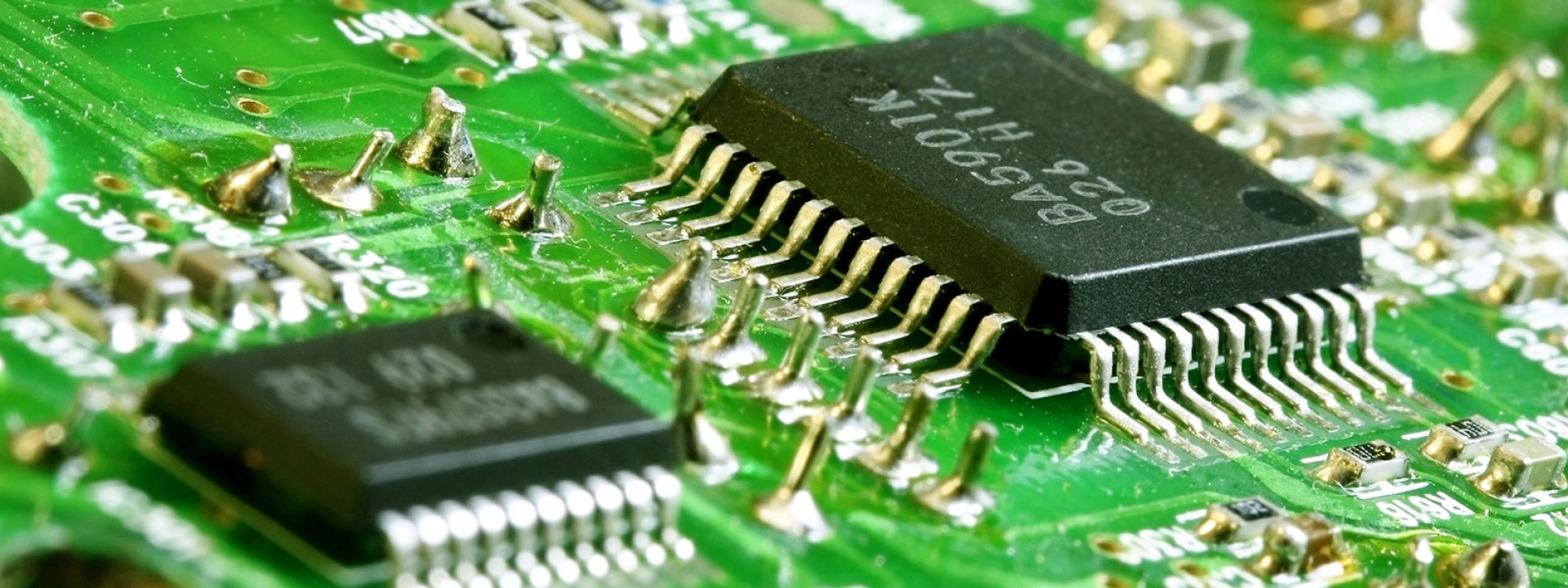News & Events
In recent years, the smart car and autonomous driving industries in China have grown in popularity. Related software and hardware technologies have become more important in these sectors, with companies focused on artificial intelligence (AI) and chip technology continuing to emerge in China. Companies such as Horizon Robotics, Black Sesame Technologies (BST), and SiEngine Technology have distinguished themselves from the others.
Horizon Robotics
Horizon Robotics was established in 2015 and focuses on edge AI chips. Horizon has leading AI algorithms and chip design capabilities, developing automotive AI chips including autonomous driving chips. In 2019, Horizon launched Journey 2, the first automotive-grade AI chip in China. By March 2020, Horizon was domestically mass-producing the Journey 2 for pre-installment.
During the Auto China exhibition in September 2020, Horizon announced the Journey 3, its next-gen automotive AI chip. Based on Horizon's self-developed BPU 2.0 architecture, the Journey 3 utilized the 16nm process and could support high-level driver assistance, smart cockpit, autonomous parking assistance, high-level autonomous driving, and crowdsourced high-definition maps.
The following year, Horizon officially released the Journey 5, the industry's first AI processor to enable L2-L4 autonomous driving. The Journey 5 uses the 16nm process and has a processing capability of up to 128 trillion operations per second (TOPS) for a single chip, comparable to Nvidia's Orin and Mobileye's EyeQ5. The Journey 5 is scheduled to begin mass production in the second half of 2022.
Horizon's next-gen Journey 6 chip is reportedly already in development. It will have a processing power of 400 TOPS and use the automotive-grade 7nm process. Samples are expected to be ready in 2023 with mass production slated for 2024.
It should be noted that automotive-grade standards are difficult to certify and represent the highest standard in the chip industry. Compared with consumer-grade and industrial-grade chips, automotive-grade AI chips have the highest requirements for safety, reliability, and stability. They must also be able to withstand temperatures from -40�J to 125�J with a failure rate of 0. Due to the high safety and reliability requirements, it takes four to five years to get from chip design to testing verification to actual mass production.
"A significant amount of testing and verification is required before chips are put into mass production and vehicles. The chips must be able to work stably for five to 10 years before they can be mass-produced and installed in vehicles. Going into 2022, our testing will be more intensive and thorough," said Horizon co-founder and CTO Chang Huang. "Based on the time from announcement to mass production and installation, Horizon is considered very fast in the industry."
In comparison, Nvidia announced the Orin chip in 2019 and Qualcomm announced the Snapdragon Ride autonomous driving platform in 2020; however, mass production and installation for both did not happen until 2022. The time between the announcement of Horizon's Journey 5 in May 2021 to successful mass production and installation is expected to be less than two years.
Horizon's ability and speed to enter mass production of its chips is well documented. Horizon announced Journey 2 in August 2019. Within 10 months, in June 2020, the Journey 2 was pre-installed and mass-produced for Changan Auto's UNI-T model vehicle. Journey 3 was announced in September 2020. Eight months later it was mass-produced and on the market in the LiXiang One 2021 model vehicle. The speed of mass production and installation is driven by extensive testing and verification work carried out during Horizon's R&D process.
The Journey 2 and Journey 3 have already been equipped in the Changan UNI-T, Chery Ant, IM Motors Zhiji, and the 2021 model LiXiang One. In the future, the next-gen Roewe RX5 will be the first to be equipped with the Journey 5. Vehicles from Great Wall Motor, Changan, BYD, Jianghuai Automobile Group (JAC), LiXiang, Hozon Auto, and Voyah have also expressed intent to cooperate with Horizon for Journey 5.
Additionally, Horizon and SAIC Motor will establish a joint team based on Horizon's future high-level autonomous driving chips to jointly create a vision-based autonomous driving system solution that is benchmarked against Tesla's FSD.
Horizon founder and chief scientist Kai Yu revealed that shipments of the Journey chips have already surpassed 1 million units, have been pre-installed in more than 40 vehicle models, and have more than 100 ecosystem partners.
Black Sesame Technologies
Black Sesame Technologies (BST) was established in 2016, the year AI technology exploded in China. Founder Johnson Shan has more than 20 years of experience in vision and chip technologies. Co-founder Wilson Liu previously served as head of chassis brakes systems in the Asia-Pacific region at Bosch.
BST's core team comes from industry-leading companies such as Bosch, OmniVision Technologies (OV), Nvidia, Ambarella, Microsoft, Qualcomm, and Huawei, and has an average of 15 years of industry experience in cars and chips. With these qualifications, BST was able to confidently enter the autonomous driving sector early in its establishment, despite the high technical threshold and difficult design and development.
BST thoroughly developed its autonomous driving AI chips and vision perception core technologies and applications, announcing its first chip, the HuaShan-1 A500, in 2019.
In June 2020, the HuaShan-2 A1000 autonomous driving chip, which has a processing capability of 58-116 TOPS, became the first chip produced in China that can support L2+ level autonomous driving. It was also the first autonomous driving chip in China to pass functional safety certification. Then, in August 2020, BST signed a technical cooperation agreement with the FAW ICV Development Institute to accelerate the industrialization of domestically produced smart driving chips.
The HuaShan-2 A1000 Pro was announced in April 2021 and was successfully taped out in July. The chip used the 16nm process and had a processing capability of 106-196 TOPS, maintaining the position of the autonomous driving chip with the highest computing power in China. This also made BST the only high computing autonomous driving chip manufacturer in China with two chips that met the ISO 26262 automotive-grade functional safety standard.
|
BST autonomous driving chip development |
|||
|
Autonomous driving chip |
Date announced |
Processing capability in trillion operations per second (TOPS) |
Application |
|
HuaShan-1 A500 |
2019-08 |
5-10 TOPS |
L2/L2.5 |
|
HuaShan-2 A1000 |
2020-06 |
58-116 TOPS |
L2+ |
|
HuaShan-2 A1000L |
2020-06 |
16 TOPS |
Advanced driver assistance system (ADAS) |
|
HuaShan-2 A1000 Pro |
2021-04 |
106-196 TOPS |
L3/L4 |
|
HuaShan A2000 |
2022-04 |
250 TOPS |
L4/L5 |
Source: BST; Compiled by DIGITIMES, May 2022
At present, the main autonomous driving chips on the market include Tesla's FSD, Nvidia's Xavier, and Mobileye's EyeQ4 and EyeQ5. On March 22 of this year, Nvidia revealed its Orin autonomous driving chip was officially going into production. A single Orin-X chip can deliver up to 254 TOPS.
Shan said BST will launch the A2000 autonomous driving CPU chip in 2022, the first in China that surpasses the performance of Nvidia's Orin. The A2000 uses the 7nm process and will be equipped in vehicles.
"2022 is the year of mass production for high-computing automotive-grade chips," said Shan. "BST will begin mass producing and equipping vehicles with the HuaShan-2 A1000 series this year, becoming the most powerful and highest performing autonomous driving chip able to be mass-produced in China. At the same time, it will also become the first mass-produced domestically produced chip platform that complies with automotive regulations and supports single-chip parking domain controllers," he added.
BST currently works with auto companies such as FAW Group, NIO, and SAIC Motor; automotive components leader Bosch; ride-hailing platform DiDi Chuxing Technology, and software company Thunder Software Technology. BST works closely with FAW Group's Hongqi and expects its chips will be equipped in future Hongqi vehicle models.
BST has attracted a substantial amount of investment with its technology. In September 2021, BST completed hundreds of millions of dollars in strategic rounds and series C financing. With a post-investment valuation of nearly US$2 billion, BST officially entered the ranks of unicorns. Investments from Xiaomi and Bosch also show that leading companies are optimistic about BST's prospects.
|
BST's major investors |
|||
|
Date announced |
Rounds |
Amount |
Major investors |
|
2022-01-12 |
Strategic investment |
Undisclosed |
Boyuan Capital |
|
2021-09-22 |
C |
Undisclosed |
Xiaomi Changjiang Industrial Investment Fund Management, Wingtech Technology, Summitview Capital, FutureX Capital, Oriza Holdings, Lenovo Capital and Incubator Group, Sunic Capital, China Automotive Chip Industry Innovation Strategic Alliance |
|
2021-01-01 |
Strategic investment |
Undisclosed |
Xiaomi Changjiang Industrial Investment Fund Management, Fulscience Automotive Electronics |
|
2019-04-12 |
B |
US$100 million |
Legend Capital, Northern Light Venture Capital, Shangqi Capital, FengHe Group, Delta Capital, SAIC Motor, SK Telecom Ventures (China), China Merchants Venture |
|
2018-01-05 |
A+ |
$100 million |
NIO Capital, Northern Light Venture Capital, Kinetic Energy Investment |
|
2016-11-01 |
A |
Undisclosed |
Northern Light Venture Capital |
Source: Companies; Compiled by DIGITIMES, May 2022
Cambricon Technologies
Cambricon Technologies is considered a pioneer in China's domestic AI chip sector. Established in 2016, Cambricon officially released the first AI chip in China in 2018, which has a theoretical peak speed of up to 128 trillion fixed-point operations per second. At the same time, with leading core technologies and flexible competitive strategies, Cambricon launches new products every year, maintaining a high level of R&D efficiency and iteration speed.
In July 2020, Cambricon became the first AI chip company to land on the Shanghai Stock Exchange STAR Market and received considerable attention from the capital market. On the first day of its IPO, its opening price was CNY250 per stock. Its peak market capitalization reached CNY112.4 billion. However, Cambricon suffered from controversy after its listing, causing its stock price to decrease. As of April 15, 2022, Cambricon was valued at CNY22.55 billion.
As Cambricon's stock price plummeted and losses mounted, divergent views from the capital market on the company intensified. To break the current business predicament, Cambricon is diversifying its business and targeting automotive smart chips.
In January 2021, Cambricon established a wholly-owned subsidiary Cambricon Xingge. The subsidiary focuses on AI software development, basic resources, and technology platforms, and is the main body for Cambricon's involvement in automotive smart chips.
Less than a month later, Ping Wang, a former partner and head of the automotive industry for Greater China at McKinsey & Company, joined Cambricon Xingge. Then on July 16, 2021, Cambricon Xingge increased its capital by CNY170 million, increasing both its capital and shares, and raising its registered capital to CNY200 million.
Increasing its capital and shares attracted new investors such as Kirin Ventures, Weiran Investment, and others, which are backed by well-known brands including NIO, SAIC Motor, and Contemporary Amperex Technology (CATL).
Cambricon's layout changed by entering the automotive smart chip sector, forming a new "cloud edge car" layout. Company CEO Tianshi Chen once said, "Smart driving is a complex system, which poses even greater challenges to the computing power, cloud training, and edge reasoning of automotive chips. Cambricon's existing cloud collaboration, combination of training and reasoning, and integrated software development platform provide a good foundation for addressing the challenges of autonomous driving."
Industry insiders noted the advantages of Cambricon's "cloud edge car" are unique among domestic Chinese automotive smart chip manufacturers. Cambricon Xingge CEO Ping Wang revealed his company will launch products covering various application environments and autonomous driving levels.
In 2022 and 2023, Cambricon Xingge will launch two types of major chips: one targeting the autonomous driving L4 level market and the other for the L2+ market.
The high-end smart driving chip for the L4 market will reportedly use the 7nm process, have AI computing capabilities exceeding 400 TOPS, a maximum CPU computing power of more than 300,000 DMIPs, and will support vehicle-end training. The entry-level chip for the L2+ market will have an AI computing power reaching 16 TOPS and features low power consumption; a single SoC can realize L2+ automated parking and driving capabilities. The chip will help popularize autonomous driving in entry-level vehicles priced at CNY50,000-100,000.
Cambricon Xingge will also collaborate with its parent company Cambricon to launch cloud vehicle solutions, which will be based on a unified platform-level basic software and instruction set architecture.
SiEngine Technology
Many leading Chinese chip makers entered the automotive AI chip sector with an advantage, relying on their AI algorithms and chips. The unexpected shortage of automotive chips only intensified demand for domestically produced chips, which has resulted in a group of automakers developing their own chips. One such company is Geely.
In 2019, ECARX, backed by Geely Holding Group, and Arm China jointly funded the establishment of SiEngine Technology. In June 2021, the company had successfully taped out and in December 2021 it launched its first domestically produced automotive-grade 7nm smart cockpit chip, Longying 1.
Previously, during the Smart Geely 2025 conference, Geely announced the SE1000 smart cockpit chip developed by SiEngine, which uses the 7nm process, would officially begin mass production in 2022 after completing automotive-grade certification.
In addition to being equipped in Geely vehicles, several Chinese automakers and tier-1 suppliers have reportedly shown interest in the chip. Many mass-produced vehicle models are in the middle of the system design process, with expectations that the chip will be integrated and tested in-vehicle in 2022.
SiEngine CEO Kai Wang said that once the Longying One is mass-produced, it will focus first on smart cockpits and then expand to autonomous driving.
"For a chip to achieve fully autonomous driving it must ensure safety. That is why after the Longying One, we will continue pushing forward with the Longying Two, Longying Three, etc.," Wang said.
Currently, SiEngine has three product lines: smart cockpit chips, autonomous driving chips, and onboard CPU chips. Sources say SiEngine has already begun development of its next-gen products, which are expected to be commercially available in 2024.
Conclusion
Automotive AI chips are the key to smart car transformation. Tesla's self-developed chips, Intel's acquisition of Mobileye, and Nvidia's multi-sided layout all show the strategic position of automotive AI chips.
There is huge potential in the automotive AI chip market, but getting a piece of the pie is not easy. Domestic Chinese companies are facing pressure from top-tier competition and will need to double their efforts, build networks, and increase the openness of their ecosystems to usher in these new opportunities.
By DIGITIMES






